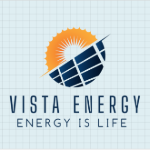Course Location/Date : Kigali, Rwanda/29 Sept., 3 Oct., 2025.
Course Date: London , UK/15-19 September, 2025
Contact us at info@vistaenergylc.com for more inquiries and registration
Course Overview:
This intensive 5-day course delivers a comprehensive understanding of flow and level measurement systems, custody transfer techniques, and hydrocarbon accounting processes essential for optimizing production and ensuring accurate revenue allocation in the oil and gas industry. From fluid mechanics fundamentals to advanced loss control methodologies, participants will explore industry standards, real-time data handling, measurement technologies, and production allocation models. The course emphasizes real-world challenges in tracking ownership in shared infrastructure, loss detection, and production reporting, ensuring participants can apply industry best practices across the hydrocarbon value chain.
Who Should Attend:
This program is tailored for professionals engaged in metering, measurement, production reporting, or hydrocarbon allocation. This includes:
- Hydrocarbon accountants and reconciliation engineers
- Instrumentation and measurement engineers and technicians
- Production and process engineers
- Operators and control room personnel
- Site and field supervisors involved in custody transfer, fiscal metering, and allocation
Key Learning Outcomes:
By the end of this course, participants will be able to:
- Understand and apply the principles of fluid dynamics and flow measurement
- Identify and evaluate uncertainties in custody measurement systems
- Compare and select appropriate technologies for flow and level measurement
- Interpret and implement custody transfer standards and industry guidelines (e.g., API, AGA)
- Apply hydrocarbon allocation methods (volume, mass, energy balance, mole fraction)
- Develop workflows for hydrocarbon accounting and loss control
- Design effective measurement strategies for liquids, gas, LPG, and LNG
- Understand deferment coding and short-term production planning techniques
- Analyze real-time transient models, emissions, and leak detection systems
- Implement best practices in production data acquisition, validation, and reporting
Course Outline:
Day 1 – Fundamentals of Flow Measurement and Level Detection
- Introduction to fluid mechanics and hydrocarbon properties
- Overview of flowmeter types and selection criteria
- Uncertainty analysis in flow measurement systems
- Custody transfer principles and measurement technologies
- Differential pressure, oscillatory, positive displacement
- Ultrasonic and Coriolis mass flowmeters
- Level measurement methods
- Buoyancy tape, hydrostatic pressure, ultrasonic, radar
Day 2 – Custody Transfer Standards, Calibration, and Terminal Operations
- Custody transfer calibration and certification
- Terminal operations and tank gauging systems
- Lease Automatic Custody Transfer (LACT) and truck transfer
- Pipeline custody transfer and operational considerations
- Leak detection, fugitive emissions, and RTTM
- Production loss monitoring and control strategies
- Custody transfer sampling and suspended S&W content
- API standards, net volume determination, and LPG/LNG measurement
Day 3 – Production Allocation Strategies
- Allocation techniques based on:
- Volume
- Mass
- Energy balance
- Mole fraction
- Reporting and validating allocation results
- Optimization techniques for field-wide allocation
- Case examples of production allocation reporting
Day 4 – Hydrocarbon Accounting Principles and Workflow
- Lifecycle overview of hydrocarbon accounting
- Requirements for implementing HCA systems
- Production data acquisition and quality assurance
- Manual and automated sampling practices
- Workflow development for production verification and reporting
- HCA case study: recording, reconciliation, and benefits realization
- Overview of metering systems and maintenance practices
Day 5 – Deferment and Production Planning
- Introduction to deferment administration and reporting
- Coding and classification of deferments
- Tools for managing and mitigating production losses
- 90-day production planning fundamentals
- Integrating deferment management into hydrocarbon accounting
